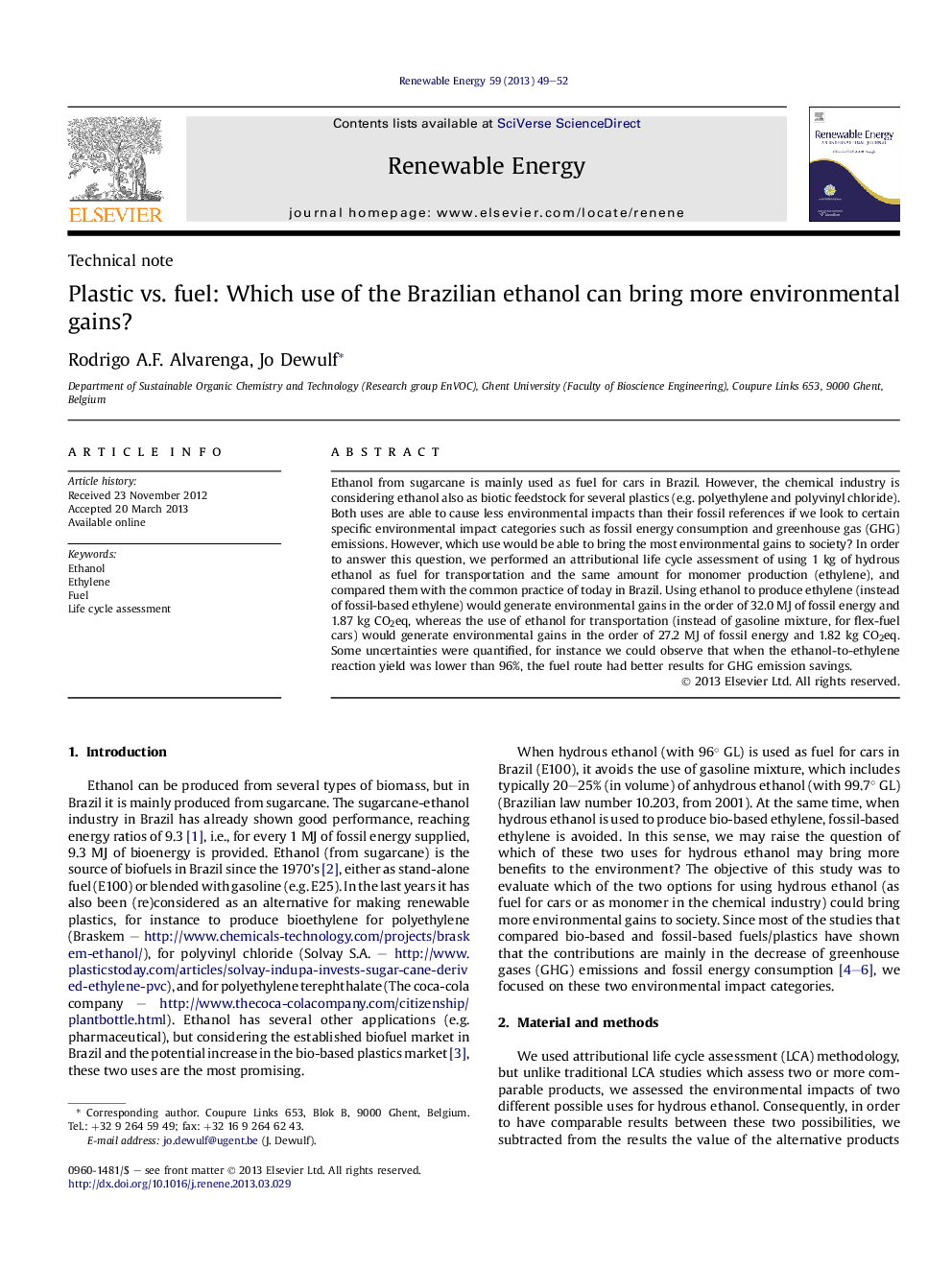| کد مقاله | کد نشریه | سال انتشار | مقاله انگلیسی | نسخه تمام متن |
|---|---|---|---|---|
| 6769110 | 512481 | 2013 | 4 صفحه PDF | دانلود رایگان |
عنوان انگلیسی مقاله ISI
Plastic vs. fuel: Which use of the Brazilian ethanol can bring more environmental gains?
ترجمه فارسی عنوان
پلاستیک و سوخت: کدام استفاده از اتانول برزیل می تواند منافع بیشتر محیط زیست را به دست آورد؟
دانلود مقاله + سفارش ترجمه
دانلود مقاله ISI انگلیسی
رایگان برای ایرانیان
کلمات کلیدی
اتانول، اتیلن، سوخت، ارزیابی چرخه حیات،
موضوعات مرتبط
مهندسی و علوم پایه
مهندسی انرژی
انرژی های تجدید پذیر، توسعه پایدار و محیط زیست
چکیده انگلیسی
Ethanol from sugarcane is mainly used as fuel for cars in Brazil. However, the chemical industry is considering ethanol also as biotic feedstock for several plastics (e.g. polyethylene and polyvinyl chloride). Both uses are able to cause less environmental impacts than their fossil references if we look to certain specific environmental impact categories such as fossil energy consumption and greenhouse gas (GHG) emissions. However, which use would be able to bring the most environmental gains to society? In order to answer this question, we performed an attributional life cycle assessment of using 1 kg of hydrous ethanol as fuel for transportation and the same amount for monomer production (ethylene), and compared them with the common practice of today in Brazil. Using ethanol to produce ethylene (instead of fossil-based ethylene) would generate environmental gains in the order of 32.0 MJ of fossil energy and 1.87 kg CO2eq, whereas the use of ethanol for transportation (instead of gasoline mixture, for flex-fuel cars) would generate environmental gains in the order of 27.2 MJ of fossil energy and 1.82 kg CO2eq. Some uncertainties were quantified, for instance we could observe that when the ethanol-to-ethylene reaction yield was lower than 96%, the fuel route had better results for GHG emission savings.
ناشر
Database: Elsevier - ScienceDirect (ساینس دایرکت)
Journal: Renewable Energy - Volume 59, November 2013, Pages 49-52
Journal: Renewable Energy - Volume 59, November 2013, Pages 49-52
نویسندگان
Rodrigo A.F. Alvarenga, Jo Dewulf,
